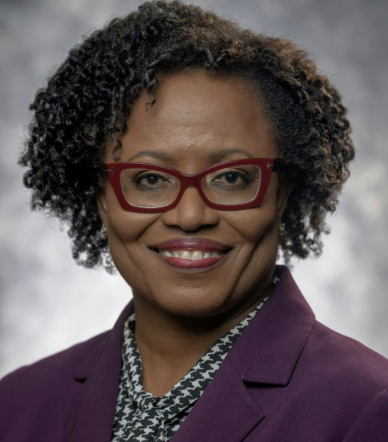
FROM BRANDON RAPP, LOUISIANA PROGRAM OFFICER
OCTOBER 2023
Philanthropy’s response to the clarion call for a just transition in the climate economy depends on its ability to remedy its roadblocks in climate funding. To date, the climate crisis has put vulnerable and historically underinvested communities at disproportionate risk and disadvantage. To mitigate those risks, philanthropy can take bold action to ensure federal investment in the burgeoning climate economy is just, accessible, and results in equitable outcomes. In my recent discussions with national and regional funders, their questions on the climate economy reveal that many are in nascent stages in their learning journey, and challenges exist to expand their current asset-building portfolios to address climate. What is most evident, however, is that many grantmakers are eager to engage and learn.
The climate economy is emerging in an effort to respond, mitigate, build resilience for, and adapt to climate change and the resultant environmental crisis. To the tune of $500B over the next 10 years, the Inflation Reduction Act (IRA), CHIPS Act, and the Infrastructure Investment and Jobs ACT (IIJA) are accelerating the climate economy. Nevertheless, philanthropy’s efforts have yet to match the urgency and magnitude of public sector investments. In 2022, according to Climateworks Foundation, less than 2% of overall philanthropic giving went to climate change mitigation. Key challenges emerge for philanthropic organizations seeking to respond with urgency, including:
- Program officers struggle to make the case to conservative or risk-adverse boards.
- Expanding climate-related portfolios risks jeopardizing or straining funder resources damaging impact from current portfolios.
- Funders have a hard time determining where best to make valuable contributions and to scale meaningful solutions in communities.
- Local or regional climate challenges create hurdles to identify and share replicable solutions from other geographies
- Funding to achieve equity and impact in the climate economy appears daunting, especially if grantees are not well prepared or positioned to implement climate investment in communities.
AFN is exploring, alongside its members, the right resources and tools to move the needle in this arena. Last month, AFN held its first peer-to-peer discussion on philanthropic investment in the climate economy. This focused, member-led discussion highlighted philanthropy’s role to drive an equitable and just transition in supporting community and households in the climate economy. Sarita Turner, Senior Advisor at Prosperity Now, and Meishka Mitchell, CEO and President at Emerald Cities, framed the discussion for AFN members, and AFN members shared advice, opportunities, and the challenges they face. In addition, funders discussed the climate crisis’ impact on major asset-building areas. Three urgent and recurring asset-building areas emerged: employment, small business, and housing.
Employment
At the federal level, the Inflation Reduction Act, to date one of the largest investments in clean energy and the green economy in the world, is creating new jobs. Based on recent reports, 170,000 jobs were created in the clean energy economy last year and the Inflation Reduction Act is projected to create more than 1.5 million additional jobs over the next decade. However, these jobs require reskilling and upskilling our current workforce. Without meaningful and succinct onramps into pathways in green jobs, many of which are good jobs with benefits, our most vulnerable and income constrained communities will not be employable or lack access to incomes that support asset building. Philanthropy will need to consider how to assist our communities where the climate crisis will impact jobs and employability.
Small Business
As a result of the federal Justice 40 initiative, federal agencies are incorporating equity and environmental justice into their grant programs, so low-income and disadvantaged communities benefit from the Inflation Reduction Act. At least $1.6 billion dollars from philanthropic organizations, impact investing, and intermediaries over the last year were spent “to ensure more direct investment to technical assistance”. But more is needed. For those communities to take advantage of the federal investment, small businesses must strengthen internal capacity, networks, and capabilities to address Federal expectations, especially for women-, black-, latinx-, and veteran-owned businesses. Philanthropy will be important in funding technical assistance for small businesses to attain federal grants.
Housing
For historically disadvantaged and underinvested communities, climate change effects on homeownership and wealth-building are pronounced. For many Black and Hispanic households, real estate drove most wealth gains between 2019 and 2023. However, over the last five years, home insurance costs have increased 21 percent on average. The increase to insurance impacts homeowners – reducing their disposable income – as monthly mortgage payments increase. The Federal Reserve Bank of Chicago reports that Black and Brown communities are more likely to drop insurance because of rising premiums. Exacerbating this trend, in some parts of the country, major insurance companies stopped offering home insurance leaving expensive public options or homeowners at risk. Philanthropy will need to advocate for homeowners and homebuyers and protect homeowners in times of crisis.
The impacts of the climate crisis and the growing climate economy on asset-building areas illustrate philanthropy’s vital role in a just and equitable transition. Philanthropy will need to fund areas in which individuals and communities are most vulnerable and least protected as a result of climate change. It will also need to determine how best to align Federal climate investments with local or regional strategies and programs to create outsized benefits for individuals, households, business owners, and communities who are most impacted. Overall, philanthropy will need to be intentional.
In the latter half of our Peer-to-Peer discussion, AFN members spoke personally about questions they are considering and wish to explore further as part of a just transition in the climate economy.
- Scaling Climate Solutions: What are the most impactful levers funders can pull in the climate economy to influence and scale replicable solutions to climate for individuals and households?
- Portfolio Management: How do we not abandon existing grantees from other portfolios? Or help support them to incorporate justice in the climate economy in their services?
- Scale of Impact: What will inequity in the climate economy look like given public investments if funders do not choose to fund and invest? What if philanthropy does not move fast enough?
- Climate Justice: How do we amplify climate justice public investments to ensure equitable delivery for the most vulnerable communities?
These questions begin to set the stage for exploring resources and tools for funders at the intersection of climate and equitable asset-building.
The climate crisis is historic and an unprecedented challenge, one in which we cannot go it alone. Philanthropy is essential to establishing an equitable and just transition for individuals and families in the climate economy. Expanding access to the climate economy will require philanthropy to fund more expeditiously. With intentional investments, philanthropy can work to preserve and protect assets in disadvantaged and vulnerable communities and identify innovative ways to bring about value in communities. Equally important, philanthropy can begin to find solutions to its most important climate questions.
Over the next few months, AFN is preparing for its National Grantmaker Conference in New Orleans, April 16 – 18. We invite funders who are currently invested in or are interested in investing in the climate economy to join us and share their experiences. You can tell us about opportunities that you have explored or developed, the challenges that you have faced or overcome, and the support that you find helpful. Our main goal is to enhance philanthropic engagement by building networks and providing promising investment strategies to grantmakers at the intersection of climate and asset-building. To learn more and find out how you can contribute to this important issue, contact Brandon Rapp at brandon@assetfunders.org. and Kristin Rennels at kristin@assetfunders.org.


